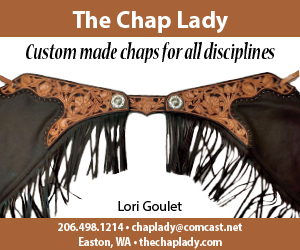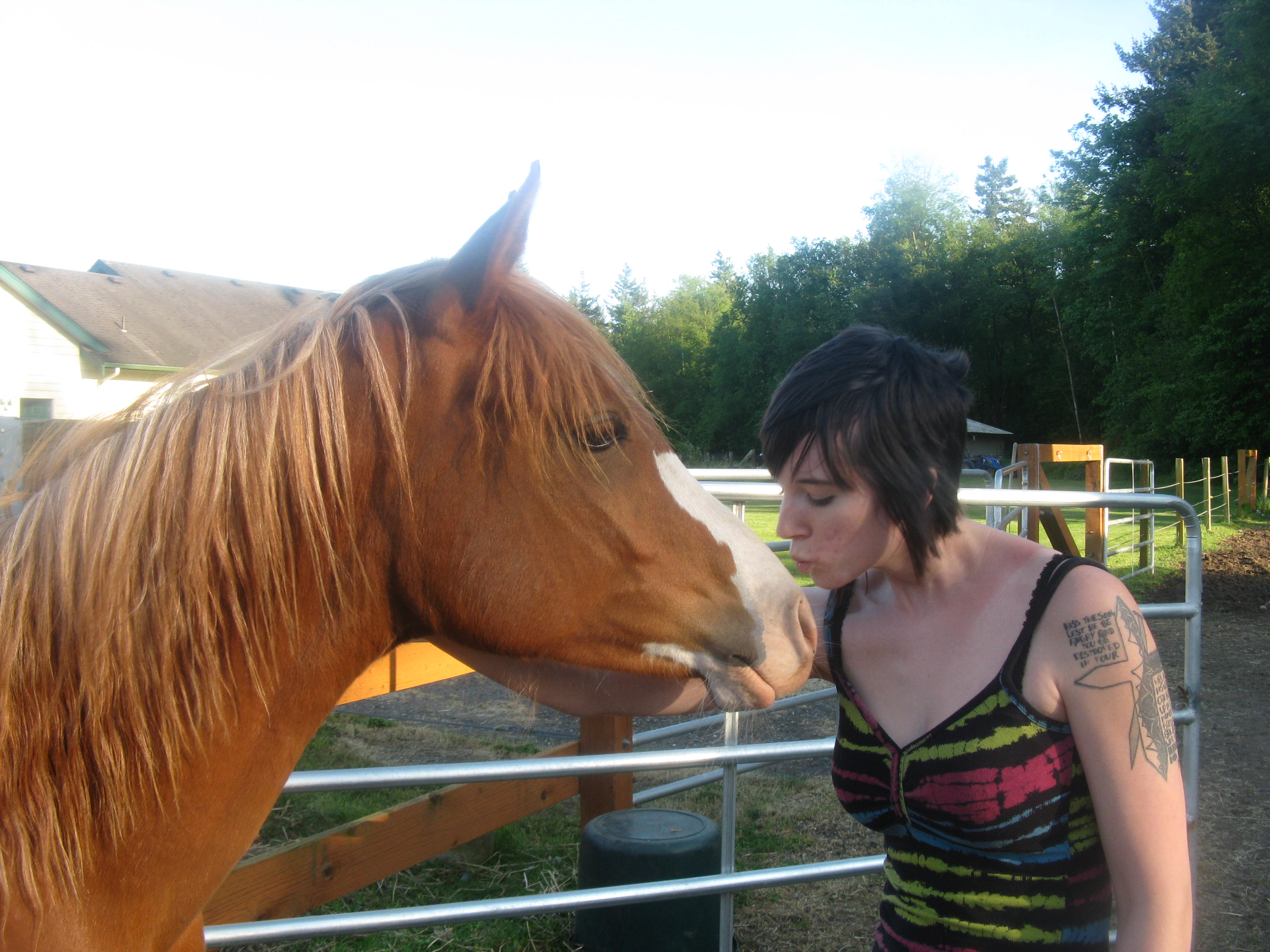Using an Equine’s Well Developed Sense of Smell to Increase Health and Wellness
The smell of a horse can be calming to those of us who love them. Many people who do not ride still keep a horse. Why? When asked a common answer is, “I need the smell of a horse in my life.”
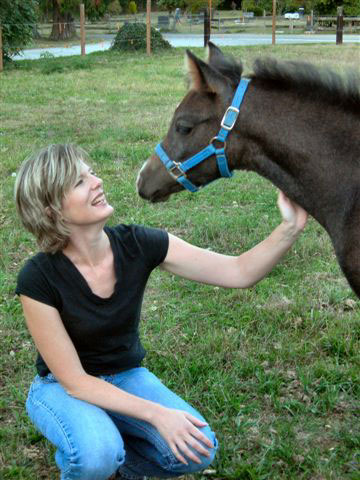
The olfactory system (the mechanism that enables smell) is not as well developed in humans as it is in many animals. Still, the whiff of a certain scent can trigger a pleasant or unpleasant feeling, calmness or anxiety. The art of aromatherapy uses the sense of smell to help support the body during an illness or time of stress. Therapeutic essential oils are the key to this interesting and helpful therapy.
“Essential” has many definitions. One that comes to mind is: “something that is required, fundamental or indispensable.” When considering aromatherapy, the definition of essential is: “the quality or nature that makes something what it is – it’s essence.” These oils are different than perfumes. Perfumes can be made from manufactured chemicals and contain artificial ingredients. Essential oils are natural and contain the molecules from beneficial plants, thus tapping into their essence.
To administer an essential oil, via aromatherapy, allow the horse to sniff the bottle of oil. If he avoids the offering, do not keep insisting. This should be pleasurable, not a fight. If the horse likes it, you can now dab a small amount of diluted oil in his stall or paddock area, so he will have the opportunity to partake at will. You may also apply a small amount of the diluted oil (not more than a drop) on the chest, neck or forehead. Be sure to steer clear of any mucous membranes. The aroma will waft up to the nose. The equine sense of smell is much stronger than ours so do not use capacious amounts, a drop is all that is needed. Monitor the area where the oil was deposited and discontinue use if skin irritation appears.
Essential oils can also be used topically. A massage using the diluted oil can help relax the horse…and you. Some oils have antiseptic properties which may help ease irritation of a minor wound. Consult your veterinarian before using essential oils on an injury. There are many essential oils and each one has specific targets. For example, lavender is known for its calming, almost sedative properties; rosemary is considered a stimulant, keeping the subject alert and focused.
Do not use essential oils internally without consulting a professional. Giving your horse essential oils orally can cause digestive upset or other issues.
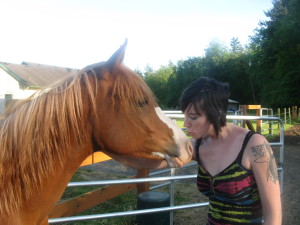
How often you use essential oils depends on the product and manufacturer. Follow the directions and buy from reputable dealers. Do not use essential oils internally without consulting a professional. Giving your horse essential oils orally can cause digestive upset or other issues.
The smell, or essence, of a horse can help us during periods of grief or sickness. Likewise, by using aromatherapy we can help them in times of stress or illness. Consider the use of essential oils for your horse; it can soothe you both.
Highlight: For information about essential oils enroll in the online course: “Essential Oils and Acupressure for Horses.” Go to: http://www.equinestudiesinstitute.com/pht_oil_acupressure_description.html. The course is provided by the Tallgrass Animal Acupressure Institute (TgAAI). Earn a certificate from TgAAI when you pass and complete the course.
To learn read more by Eleanor Blazer visit thewayofhorses.com.
Published in February 2015 Issue
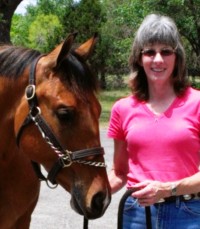
Eleanor Blazer was raised training and caring for horses. She learned to ride and care for the horses her family bought and sold. Many of these horses required improved nutrition when they arrived for training. Eleanor’s experience and research has benefited both horses and horse lovers in the field of equine nutrition. An equine nutrition consultant, based in Bulverde, Texas, she keeps busy doing equine nutrition consultations, conducting seminars, and speaking to youth groups about horse care and nutrition. Eleanor is the author of the syndicated column The Way of Horses. She has more than 20 years experience helping and being a mentor to those wanting to know how to provide the very best care and nutrition for our special friend – the horse.


